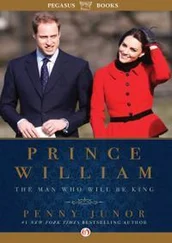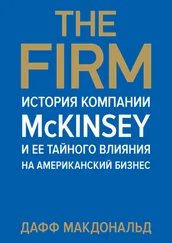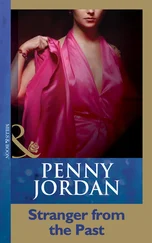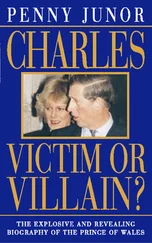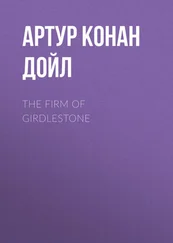Robert Davies, CEO of International Business Leaders’ Forum, encounters every kind of system and says that very few of them have the dignity and sense of continuity that some of the monarchies have. Politicians rarely take a long-term view or commit themselves to prolonged support; and they come and go. He can’t think of anyone who has been in the same position for the last twenty years. The Prince of Wales has; he brings a sense of history – he knows where he has come from and where he is going and has the stamina for the long run. He’s not just in it for an election campaign or to publicize a movie; and he’s not an egomaniac. ‘He’s not an egomaniac at all; zero, compared with most politicians and many other leaders, yet at the same time he has got unshakeable views on the continuity of life.’
Vernon Bogdanor believes that the position of the monarchy today has to be considered in the light of the very strong anti-political mood that is spreading in Britain and other democracies. Only 58 per cent of the population voted in the last general election and politicians no longer command the respect they once did. Prime Ministers like Churchill and Attlee were regarded as leaders of the nation and there was tremendous deference towards them. That has gone and the monarch’s role, therefore, as someone who can speak for the country as a whole, rather than one small section of it, has become more significant. On key occasions it is important to have someone well known who can represent the whole of the nation to itself – as the Queen did on the anniversary of VE Day when she appeared on the balcony of Buckingham Palace. A politician could never have done that; neither could a retired politician acting as president. That’s what happened in Germany and Italy and most people have great difficulty in remembering their names. They don’t have the same resonance with the public as the sovereign.
Elizabeth II has been a very remarkable sovereign. She has not put a foot wrong in more than fifty years and, while she may not be the most exciting of figures or the most inspirational of speakers, she is utterly genuine, totally dedicated and entirely professional and is as constant and predictable as the British weather. Privately she is much less predictable. ‘You suddenly find yourself having conversations with the Queen that you can’t believe you’re hearing,’ says a former minister. ‘She’s extraordinarily indiscreet and very funny – not all that often, but you realize there’s another person there who is fascinating and enchanting and girlish. Every now and again I have to pinch myself to believe what she’s saying and the questions she’s asking me.’ Her public persona is very different, very narrow and almost devoid of personality, which perhaps accounts for her universal appeal. She is loved and respected not just in Britain but in the countries she visits all over the world – even republicans tend to have a grudging admiration for her. There has never been a whiff of scandal surrounding her life – and attempts over the years to suggest that Prince Andrew was not Prince Philip’s child have never gained much currency. There was criticism over her intervention in the Burrell trial, but that was transitory.
Prince Philip has attracted more controversy. Quite apart from his gaffes, for most of his married life there have been stories and rumours about extracurricular activities. I don’t know whether they are true or not, although I certainly know that a number of people who have worked inside Buckingham Palace believe they are true, as do some of the families who have played host to the Prince while he has been taking part in his carriage-driving competitions. It could all be malicious gossip. I don’t think it matters one way or the other – at least not to anyone outside the marriage. What matters is whether Philip has been a supportive consort and it is demonstrable that he has. Rude and bad-tempered though he may be, he has put duty before pleasure, worked tirelessly to advance his charities and organizations and made a major contribution to the success of the Queen’s reign.
Having known him for years, one former Foreign Secretary believes Prince Philip is the least understood member of the family and that ‘his roughnesses’, as he calls them, come from the fact that the Prince leads an extremely boring life and every now and then feels compelled to stir the waters. He is a radical within a very traditional cast of mind, and he may not be politically correct, but he’s a very good consort. He always notices if the Queen has forgotten to talk to someone or if the conversation has been cut short or doesn’t go quite right and is always there to take care of it. And he’s right. I saw it myself. During their visit to the Surrey town of Dorking in March 2004, I watched him pick up a disconsolate child with a single daffodil clutched in her hand, who had been desperate to attract the Queen’s attention and failed. He went across to the barrier, lifted the little mite over it and told her to go and give the Queen her flower.
Australia has been toying with republicanism for years and, with a sovereign thousands of miles away, there are very strong arguments for changing its constitutional make-up. No one was fooled by the results of the recent referendum and there are many who think that when the Queen dies there is no question that the country will become a republic. It is the affection and regard for the Queen as an individual that many believe has prolonged the status quo and made her such a powerful force within the Commonwealth. But that affection and regard does not extend to the Prince of Wales. ‘If Charles were to come to the throne either now or in twenty years’ time, the British political system would be quite worried,’ says a former diplomat, ‘whichever political party was in power because of his position vis-à-vis the fifteen or sixteen countries in which the Queen is Head of State, whether they would simply take over Prince Charles. I very much doubt they would given the past – the marriage, the adultery – and given public opinion in those countries. Also any suggestion that he would automatically take over the Commonwealth is very questionable. That is my judgement of public and political opinion in these countries.’
John Major is convinced that the Queen has played a vital role in those countries.
I do not believe the British Commonwealth would be a single entity if we did not have a monarch as the focus for it. Unity is better than disunity and you have some of the richest nations of the world, like ourselves, to some of the very poorest, facing terrible problems and the Commonwealth Conference brings them all together. It is in the nature of life that often there are squabbles, but there is a sense of real comradeship and from time to time these diverse countries act in a spirit of unity which is quite remarkable. When Ken Saro-Wiwa [the writer and political dissident] was murdered by the then Nigerian government during a meeting of Commonwealth Conference, I proposed action against Nigeria and received immediate support not only from Australia and New Zealand but from Nelson Mandela and, surprisingly, Robert Mugabe. Action was taken, because Nigeria’s behaviour was outside the principles agreed in the Harare Declaration. Immediately after the Gulf War [of 1993] the Kurds were being murdered in very large quantities. I went to a European summit and proposed pretty much off the top of my head a policy we called Safe Havens for the Kurds; we needed to get it approved by the American government, crucially, and the United Nations. I proposed it at the European Union Heads of Government meeting, got the support of Mitterrand and Kohl and then got in touch with the whole of the Commonwealth. With them and the European Union, I had huge support at the UN, there was a great weight of opinion behind it and the Americans rode in. Whether they would have done without all that support I don’t know, but the united Commonwealth meant the UN were immediately on our side and the overwhelming amount of world opinion was behind the concept that we had to do something to help the Kurds. As a result, tens, maybe hundreds of thousands of lives were saved.
Читать дальше
Конец ознакомительного отрывка
Купить книгу

